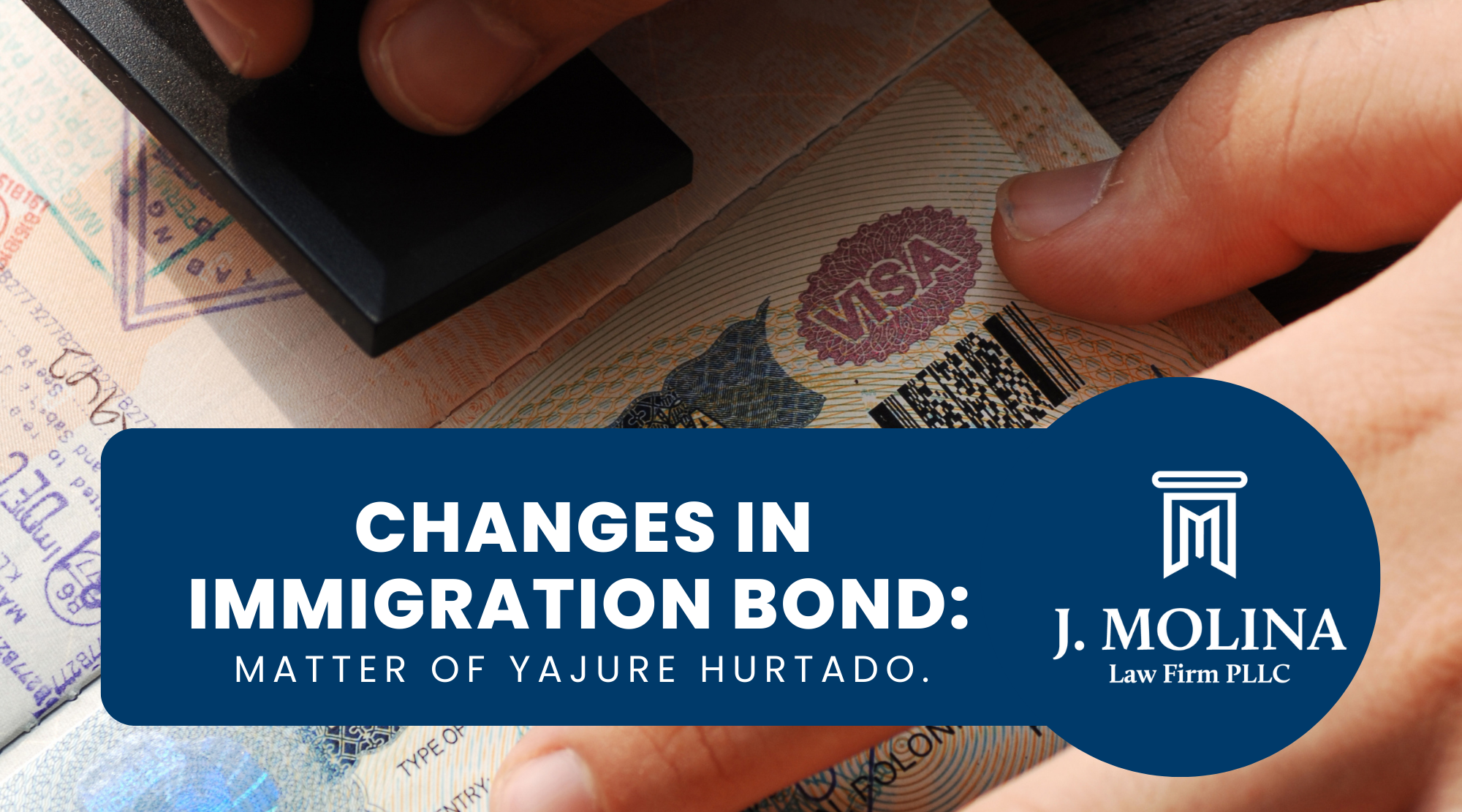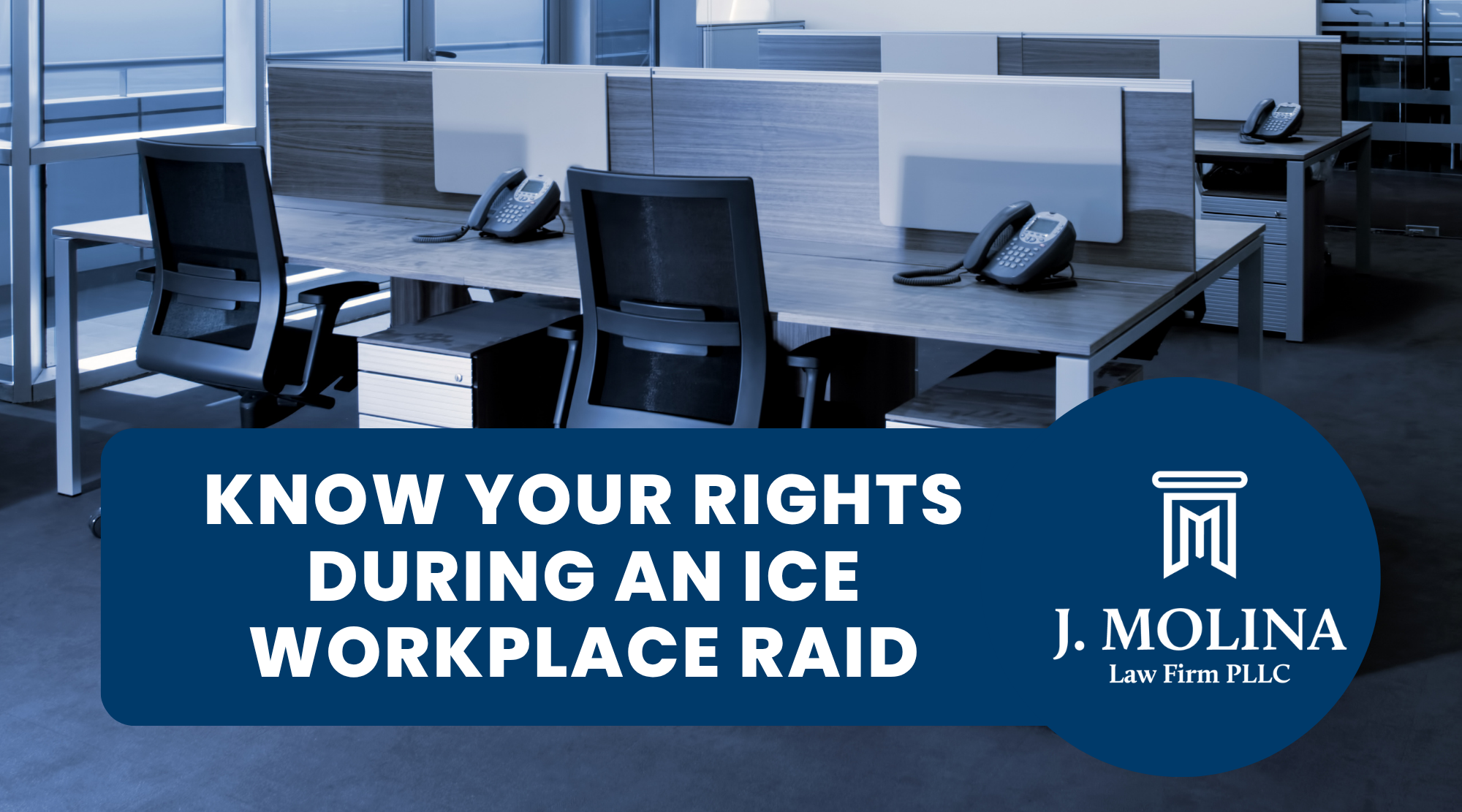If you’re an immigrant detained by ICE or facing removal proceedings, the possibility of release on bond has always offered a glimmer of hope. But a recent decision by the Board of Immigration Appeals (BIA) — Matter of Yajure Hurtado, 29 I&N Dec. 216 (BIA 2025) — has significantly narrowed who qualifies for an immigration bond. This change could impact thousands of individuals currently in the U.S. without legal status.
In this blog, we explain what Matter of Yajure Hurtado says, what has changed, and who is most affected by the new rules.
What Does Matter of Yajure Hurtado Say?
This BIA decision, issued on September 5, 2025, involved a Venezuelan man who entered the U.S. without inspection and was later detained after his Temporary Protected Status (TPS) expired.
The Immigration Judge (IJ) denied him bond, stating they lacked jurisdiction and, alternatively, that he was a flight risk. The BIA upheld the decision and ruled that individuals like Mr. Yajure Hurtado — those who entered without admission or inspection — are considered applicants for admission under INA § 235(b)(2)(A). This makes them subject to mandatory detention, meaning Immigration Judges do not have authority to release them on bond.
What Has Changed in Immigration Bond Law?
1. Fewer Bond Hearings for Entrants Without Inspection
Before this case, many immigrants who had lived in the U.S. for years — even if they entered without inspection — could argue they were detained under INA § 236(a) and ask for a bond hearing. Now, if you entered without admission, you’re automatically categorized under § 235(b), which requires mandatory detention with no right to a bond hearing.
2. Immigration Judges Lose Jurisdiction in These Cases
The decision clearly states that if someone is classified under § 235(b)(2)(A), the Immigration Judge lacks the authority to consider a bond request. This represents a major restriction on judicial discretion in immigration courts.
3. Broader Definition of “Applicant for Admission”
The BIA reaffirms that even if someone has lived in the U.S. for years, they are still legally seen as an “applicant for admission” if they were never admitted or paroled — and that label alone is enough to trigger mandatory detention.
Who Is Affected by This Change?
This decision primarily affects:
- Noncitizens who entered without inspection (for example, crossing the border without going through a port of entry).
- Individuals who have been in the U.S. for years but were never formally admitted or paroled.
- People previously eligible for bond hearings under more lenient interpretations of immigration law.
Now, these individuals will not have the chance to argue for release in immigration court. Their only remaining options are to seek discretionary parole from DHS or file a habeas corpus petition in federal court challenging their detention.
Why This Matters
The practical effect of Matter of Yajure Hurtado is clear: more immigrants will remain detained for longer periods, even if they have deep ties to the community, no criminal history, or compelling reasons to be released.
With this ruling, the path to freedom while fighting your immigration case becomes narrower. And for many, the only option left is to wait in detention — sometimes for months or even years — unless they can secure parole or win a federal court challenge.
Need Help Understanding Your Options?
Immigration law is constantly changing, and staying informed is critical — especially if you or a loved one is detained. At J. Molina Law Firm, we’re here to help you understand your rights and fight for your release. Our experienced team can guide you through complex cases like this one and explore every possible legal avenue for your freedom.
Contact us today to schedule a consultation. You don’t have to go through this alone — we’re here to stand by your side every step of the way.



